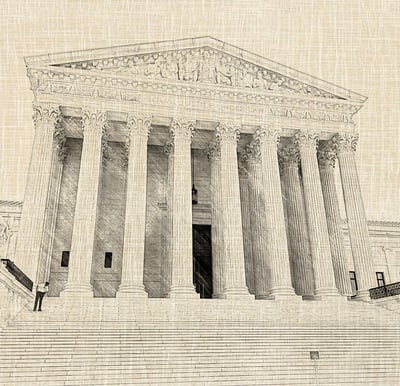Chaplaincy and The Law: Evangelism


The other day, I was out at a fire district in the state and was talking with a firefighter about chaplaincy. He stated that he wanted to start a chaplaincy program in his department so he could reach all the firefighters so they would be Christians. His sole motivation was to win people to Christ.
A while back, I was talking with a Chief at another department, and he told me that when there was a house fire, he wanted his Chaplain there with his bible. After a few seconds, I suggested to him that I would rather see his chaplain there with blankets, food & water, medical help, information on how to contact the Red Cross and other resources, and to be able to explain what the firefighters were doing. And then, if it seemed right and the family wanted, pray with the family.
I heard about a department here in South Carolina that had a pretty good chaplaincy program till a few chaplains used it as a platform for evangelism. The first responders made complaints. Now, the program has been reduced considerably because the Chief wants to avoid dealing with it and taking the risk of having chaplains anymore. I have heard stories like this repeated repeatedly across this nation.
While as a Christian, I believe very deeply in taking the Gospel message to the world, I realize that as government chaplains (paid or volunteer), we work in a unique place in this nation where evangelism in the workplace can invite lawsuits. In a country where so many believe that faith should not be directed from the state, we, as chaplains, work for the state. And not everyone (including us chaplains) shares the same faith. So, what are the rules for sharing your faith as a public safety chaplain? Sometimes, it's not clear-cut. But here are some guidelines that should help keep your chaplaincy out of the courts.
For those of us who serve under the International Conference of Police Chaplains, their Canon of Ethics states:
The Law Enforcement Chaplain serves in an ecumenical capacity. He or she is not to use the chaplaincy to proselytize or to preach in order to win adherents to his or her faith group. It shall be assumed that the Law Enforcement Chaplain shall be familiar with the beliefs and practices of the various faith groups represented in his or her Department. It shall further be assumed that the Law Enforcement Chaplain is familiar with the requirements of honesty, integrity, humility, compassion, decency, brotherhood, humanity and love that are overarching concepts among faith groups. From <http://www.icpc4cops.org/chaplaincy-intro/canon-of-ethics.html>
This is very close in wording to the Canon of Ethics for the South Carolina Public Safety Chaplains Association
While this particular Supreme Court ruling was addressing paid chaplaincy and prayer, a few guidelines apply. The Justices stated that while they weren't necessarily concerned with the content of the chaplain's prayer, thus causing freedom of speech and establishment issues, they did give some guidance. The chaplains were not to use the prayer to either proselytize or denigrate the faith of others. Chaplains were also to refrain from speaking on behalf of everyone listening since that would cause establishment issues.
Religious harassment under Title VII?
Religious harassment in violation of Title VII occurs when employees are: (2) subjected to unwelcome statements or conduct that is based on religion and is so severe or pervasive that the individual being harassed reasonably finds the work environment to be hostile or abusive and there is a basis for holding the employer liable. From <https://www.eeoc.gov/policy/docs/qanda_religion.html>
Where evangelism may cross the line is what the employee holds as reasonably harassed. There are many different views on this subject, but what is clear is when someone doesn't want that expression of faith, it can easily construed as harassment.
As government chaplains, we walk the line of establishment and free exercise of the First Amendment. We don't want to violate this. When we do, we invite lawsuits. While we can share our faith in the workplace like anyone else, that is not necessarily the main work of the public safety chaplain. Because of our faith, we walk with people during some of the worst times of their lives. Sometimes, the opportunity is there to share why we do what we do; sometimes, it is not. The general rule has been that we only share our faith if asked or invited. That keeps people from feeling coerced. Violating these guidelines for evangelism not only puts your chaplaincy at risk for lawsuits, but it may push back chaplaincy for all of us.
